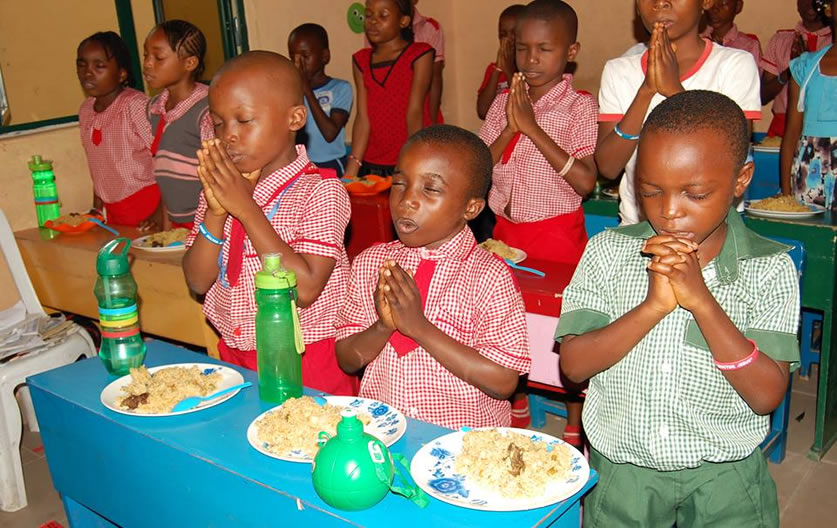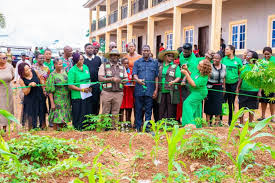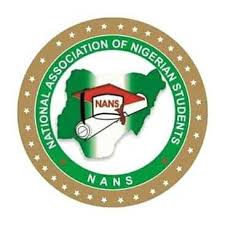Education
Giving 45,000 Nigerian Children Quality Education via OPM Free Schools

By Emmanuel Afonne, (NAN)
For the United Nations Educational, Scientific and Cultural Organisation (UNESCO) and the United Nations International Children’s Emergency Fund (UNICEF), achieving the Sustainable Development Goal (SDG) 4 on education and training modalities by 2030, will be a herculean task in Nigeria.
According to the two UN organisations, one in every five of the world’s out-of-school children is in Nigeria, while about 10.
5 million of the country’s children aged 5-14 years are not in school even though primary education is officially free and compulsory.In the same vein, infographics from Lauretta Onochie, Social Media Adviser to President Muhammadu Buhari, however, said that the number had dropped from 10.
5 million to 8.6 million.Whatever be the case, statistics show that only 61 percent of six to 11-year-olds regularly attend primary school and only 35.6 percent of children aged 36-59 months receive early childhood education which, they said, was the major reason the Millennium Development Goal (MDG) of achieving Universal Primary Education (UPE) by 2015 failed.
To narrow it down, states in the North-East and North-West are the worst hit with female primary net attendance rates of 47.7 percent and 47.3 percent, respectively, meaning that more than half of the girls are not in school.
The cause of education deprivation in northern Nigeria and some parts of the South is, however, not far-fetched.
The Boko Haram attacks and the mayhem unleashed by bandits and killer herdsmen on most of the Nigerian communities have made lots of children drop out of school and thereby putting a snag in government efforts to achieve the SDG 4 by 2030.
Economic barriers and socio-cultural norms and practices are also stumbling blocks to acquiring formal education, especially for girls, and by extension the UN development goals.
Interestingly, the General overseer of Omega Power Ministries (OPM), and the President of OPM Foundation, Apostle Dr Chibuzor Gift Chinyere, have set “Operation Get 45,000 Children Back to School”.
The operation is aimed at ensuring that children of the less privileged from Northern and Southern parts of the country have access to free and complete quality education, within a safe learning environment.
This explains why Apostle Chinyere has built eleven free primary and secondary schools with the state-of-the-art facilities and the pupils and students given four pairs of free school uniform, free school shoes and free school books.
The schools are presently located in Rivers, Bayelsa and Abia.
The students and pupils are also given beverages (Milk and Milo) on regular occasion to compliment the schools free feeding programme.
He said: “Just like the United Nations is advocating, our programme ensures that education is prioritised and that it is targeted at children who are least likely to receive it.
“Our free schools are fully funded through the offerings and tithes received from our members in over 150 branches of the church within and outside the country.
“We want to assist the Federal Government in actualising the SDG by 2030 to make sure all the children have access and quality education, skills and knowledge for lifelong learning,” Apostle Chinyere said.
Seeing the less privileged parents squeeze out their hard earned little money to send their wards to school in spite government’s perceived free education unsettles.
Another free school is presently being constructed in Kaduna to ensure the less privileged in the Northern part of the country are not left out as Nigeria march towards achieving the SDG 4 by 2030.
Apostle Chinyere is taking the gesture to the next level; apart from establishing free primary and secondary schools, the man of God is constructing an all-girls’ free technical college which, he said, would be completed by December this year.
There is no doubt that the federal and state governments have made frantic efforts to ensure that there is free education from primary to junior secondary schools across the nation, but there is still a snag as parents still pay about N2,000 to get their wards go to school every term.
For instance, in some schools parents are forced to pay between N500 and N1,000 for school charge, Parents Teachers Association (PTA) dues and data (usually for computing of results) every term to attend the so called free public schools of government, but it is interesting to note that the cost of attending the OPM free schools is absolutely free.
Apostle Chinyere is saying it to the high heavens that everything in the OPM schools is “absolutely free”.
“We have four sets of school uniforms, school sandals, free school books, free lunch and free school bags. The pupils also go on international excursion; like the last time, they were in Paris.”
This is the reason the National Association of Nigerian Students (NANS), honoured him with the “Icon of Free Education Award”.
Mr Robin Nwokocha, Chairman of NANS, Rivers chapter, who presented the award to Apostle Chinyere on behalf of the national president, said the award came as a result of his commitment to the education of the less privileged children.
Apostle Chibuzor, who appreciated NANS for the award said that apart from the free schools, the church had also given scholarships to five students studying in Canada. He said three others are due to join before the end of the year.
In his words: “We also have a scholarship programme where we send undergraduate students to Canada to study; another three are due to travel soon.
“We also have a local scholarship for undergraduates here in Nigeria because of this, NANS leadership decided to give me an award of Icon of Free Education in Nigeria.
“I thank God for them; this is the first time NANS is recognising my impact in education for the less privileged.”
Apostle Chinyere may be getting close to becoming an Ambassador of the UN going by his humanitarian activities.
The aim of UNICEF’s education programme is to support the government in achieving SDG 4 by 2030 through improved planning and by addressing some of the systemic barriers that hinder the implementation of an effective education strategy.
The OPM founder seems to be keying into this opportunity to the benefit of the Nigerian child. He would not want the opportunity of attaining the UN development goal on education by 2030 to elude Nigeria like the MDG.
He is seeking to collaborate with the Federal Government, UNESCO, UNICEF and other agencies for this objective to be realised.
Education
FG Denies Slash in Students’ Allowances

The Federal Government says it has no plan to slash scholarship students’ allowances as recently projected in the media.The Minister of Education, Prof. Tahir Mamman, stated this during a meeting with the leadership of the National Association of Nigerian Students (NANS) in Abuja on Friday.
Report says that there was a report that the ministry, through the Federal Scholarship Board, announced a slash in allowances of foreign scholars stranded in Russia, Morocco, and Algeria among others.
The slash in scholars’ allowances under the federal government’s Bilateral Educational Agreement Scholarship (BEA) was attributed to the economic crises.Mamman said that there was no slash in scholars` allowances but rather an adjustment due to Foreign Exchange fluctuations (FOREX).“We want to clarify what has been in the media on allowances paid to scholars under the Bilateral Scholarship Agreement.“We want to place it on record that the ministry and the Federal Government for that matter have not slashed the allowances due to students.“What happened is some adjustments in the amount due to them because of FOREX fluctuations, and as soon as we get the balance we have applied for, we will pay them.“But for now, what is in the budget is what we can pay. So, there is no slash, we will even be happy to increase, so this is what has led to the adjustments,” he said.(NAN)Education
Minister Unveils Fed Education Sector Games Mascot Scheduled for Bauchi

By Tony Obiechina, Abuja
Ahead of the Federal Education Sector Games (FEDUGAM) slated for Bauchi, the Federal Ministry of Education has unveiled the mascot for the 4th edition named “FEDUGAM-Bauchi 2024,” at a ceremony held in Abuja.
Speaking during the unveiling, the Minister of Education, Prof.
Tahir Mamman, represented by the Minister of State, Dr. Tanko Yusuf Sununu, expressed profound gratitude to attendees for their unwavering support and dedication to advancing the education sector.In a statement by the Director Press and PR, Folasade Boriowo, the Minister noted that FEDUGAM serves as a cornerstone for fostering camaraderie, sportsmanship, and community spirit among educators, administrators, students, and staff.
“The newly unveiled mascot embodies the values of physical fitness, teamwork, perseverance, and fair play, and is set to inspire participants throughout the games” the statement stated
Mrs. Didi Walson-Jack, Permanent Secretary of the Federal Ministry of Education, reiterated the importance of the games in promoting unity, friendship, fitness, and mental alertness among the Ministry and Agency staff.
She expressed gratitude to everyone involved in organizing the event and encouraged participants to compete with integrity and enjoy the games.
Chairman of the FEDUGAM Steering Committee, Omotayo F. Adeyemi, welcomed attendees and thanked the Minister and other dignitaries for their presence despite their busy schedule.
He harped on the mascot’s significance in representing the spirit of the games and thanked the organizing committee for their relentless efforts.
Adeyemi called for widespread support from ministries, agencies, corporate organizations, and partners to ensure the success of FEDUGAM Bauchi 2024.
FEDUGAM Bauchi 2024 is scheduled to take place from August 3-10, 2024, at the Abubakar Tafawa Balewa Stadium in Bauchi State.
The event aims to celebrate educational achievements and foster unity within the sector, with the Executive Governor of Bauchi State, His Excellency Sen. Bala Abdulkadir Mohammed, graciously hosting and supporting the event.
“As the games approach, the entire Ministry stands united in support, echoing the spirit of the mascot unveiled today. Let us come together to celebrate our shared achievements and work towards a brighter future for our education sector,” the statement added.
Education
ENSUBEB Executive Chairman Flags-off Agric Education Training

From Sylvia Udegbunam, Enugu
The Executive Chairman of Enugu State Universal Basic Education Board (ENSUBEB), Associate Professor Hyginus Banko Okibe has flagged off the 2022/2023 Agricultural Education training programme for head teachers, teachers, and pupils at Independence Layout Primary School, Enugu.
Professor Okibe emphasized the importance of agriculture for economic development and growth, stressing that the country’s major problem is hunger due to people not engaging in farming activities anymore.
He noted that schools should be exposed to agricultural skills and technology; he however announced that there will be an agricultural trade fair, where produce from all schools will be showcased.
The Commissioner for Agriculture and Agro Industrialisation, Dr. Patrick Nwabueze Ubru, in a keynote address, highlight the importance of agriculture, stating that without it, there will be no life.
He disclosed that 12,000 bags of fertiliser will be distributed to registered farmers in the state and noting that non-farmers will not receive farming inputs and fertilisers.
Ubru reiterated that agriculture occupies an important space in the Governor’s vision and manifesto as one of the developmental areas for reviving the economy.
He said that Enugu State has introduced dry season farming with solar pumping machines and embarked on three-cycle rice production, making it the largest producer of cassava in the country.
He further disclosed plans to establish agricultural processing industries in the three senatorial zones of the state.
Dr. Amaka S. Ngene, Executive Chairman of STVSMB and former Permanent Member of ENSUBEB, appreciated the guests and emphasized that the agricultural education training programme is child-centered, aimed at making agriculture a future career or hobby for the pupils.
She enumerated the objectives of the training, including the provision of requisite skills for self-employment.
Hon. Nwakaego Ajah, Permanent Member 3, thanked the Executive Governor of Enugu State, the Executive Chairman of ENSUBEB, and UBEC for the initiative in making Agricultural Science more practical-oriented at the Basic Schools.
She urged the learners and teachers to take the training serious and also promote their dignity in labour.
The event featured lectures on food crops, planting, and care, and the distribution of farm inputs and plants to various schools.
The highlight of the occasion was the decoration of Dr. Amaka Ngene by the Commissioner for Agriculture and Agro Industrialisation.






















